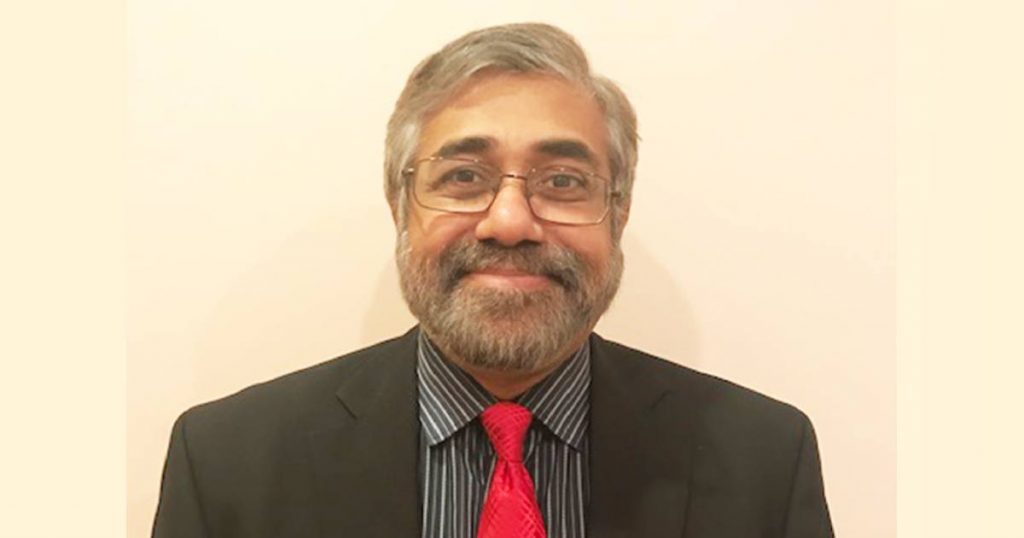On July 30, 2021, I wrote “In our multiethnic society, all must play an inclusive role in our national defence”, refuting Hamilton Green’s antagonistic position against creating a balanced (or inclusive) disciplinary force. Terrence Campbell (7/31/21), a successful African Guyanese businessman, raised genuine concerns about the “exclusion of Afro-Guyanese from the private sector”. A Stabroek News blogger, Mike Persaud (8/2/21), argued that an inclusive disciplined forces should not be contingent upon any other national issue. I share the sentiments of both men. Guyana remains a deeply divided state.
On Sunday, August 8, at an Indo-Caribbean Cultural Centre (ICC) Zoom public meeting with panelists Dr. Tara Singh and Ravi Dev, the audience was reminded that not a single prominent African Guyanese organization publicly denounced President David Granger’s perfidy of the 2020 elections. While the PNC continues to gaslight its supporters, the party has successfully united its traditional base against the government, mainly using accusations of corruption, racism and economic deprivation/neglect. With a largely Indian audience at the public meeting, a question was posed: “If the PPP/C were to demit office or lose the election four years from now, would you feel safe under a PNC or coalition government?”
I suggested an action plan, based, inter alia, on the following:
1) A national Affirmative Action Program to help economically and socially depressed communities, particularly Amerindians, to ensure all Guyanese benefit from state resources (small business loans, government training, etc) to advance their human development. Such a plan would address accusations that PPP/C supporters are primarily beneficiaries of the largess of the state. An ethnic caucus, akin to the “Black Caucus” in the US Congress, with legitimate representatives from each major community can act as an advisory body to the government on specific policies going forward.
2) Utilization of Ethnic Impact Statements to evaluate and assess effectiveness of national policies and their potential impact on specific communities. This would ensure a more equitable use and distribution of state resources and negate charges by African leaders that the PPP/C is promoting “economic genocide” (a term frequently used by Aubrey Norton and Lincoln Lewis).
3) Creation of a decentralized (or Federal) state, constructed not necessarily on the basis of ethnicity, but centered around geography and population distribution, with real power embedded in local governments. Such a systemic and structural transformation would address unequal development, empower local communities and reduce dependency on a national government with centralized powers.
.
Regarding the issue of balancing in public institutions, it was Vice-President Jagdeo who reminded Guyanese at the May 2021 Diaspora Conference that Afro Guyanese maintained “overwhelming numbers” in the army, police and public service, even during his tenure as President. However, Jagdeo’s comments were meant to benevolently placate Africans, not as an argument for inclusivity. Surely, President Ali must know about President Hoyte’s appeal to “kith and kin” or the violent street protests on January 12, 1998, following the 1997 elections, resulting in the Herdmanston Accord which truncated the PPP’s official term by 2 years.
Despite its obvious urgency, the PPP/C leadership will not willingly move to create an inclusive security and defense force for two reasons. One, Cheddi Jagan bequeathed the PPP/C with an original political sin, namely that politics in Guyana must be understood through the lens of class analysis, despite the primacy of race/ethnicity. This embedded Marxist paradigm reinforces the view that as the economy develops, its trickled down effect will render ethnic politics obsolete. So why bother to frontally address the problem? Two, as Professor Tarron Khemraj noted, the oil/gas wealth has endowed the PPP/C with enormous leverage to manipulate state resources to “buy off” (coopt) potential members of the African community. Our history has shown that both of these misguided strategies have worked to the detriment of the PPP/C, and its supporters. To date, the PNC has not renounced its penchant for violent street protest (Norton calls them “strategic” protests). We are now witnessing continued street protests, egged on by PNC Parliamentarians, as David Hinds calls on Buxtonians to protest with “aggressive militancy”. The government should also be mindful of a recent warning regarding the use of the oil windfall from Albio Sires, Chairman of the US Congressional sub-committee on the Western Hemisphere, upholding the dictum that “there are no permanent friends, only interests”.
Supporters of the PPP/C anxious over what life might bring them in a post-PPP Guyana have an obligation to demand that the Ali/Jagdeo administration frontally address the ethnic dilemma. If President Ali is secure in his control of power, and confident in his ability to govern, a good place to start would be to enter into national dialogue with the Opposition. Waiting until the PNC reconciles its internal contradictions will only pose a greater challenge to the government with the possibility of erasing all that has been achieved during the PPP/C’s first year in office.
By Dr Baytoram Ramharack
